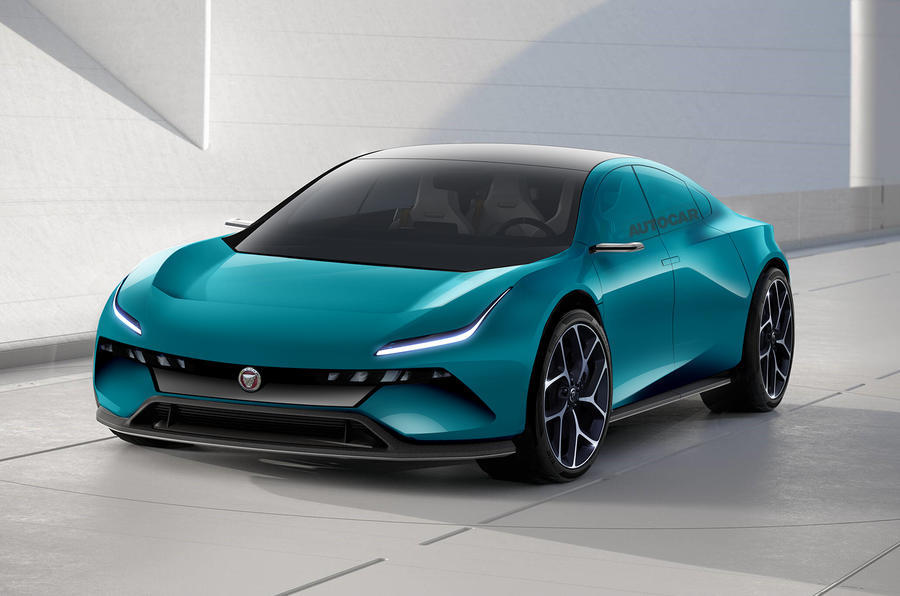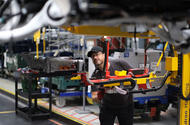Among the new roles, 40 will be tasked with creating next-generation battery technologies
New roles, part of a £15bn investment, join 300 additional positions created by British car maker last year
JLR is recruiting 250 electrical engineers to work on a host of new EVs arriving by 2030, starting with the electric Range Rover later this year.
These new positions join an already announced new 300 technician roles, all funded by JLR’s £15bn Reimagine strategy fund, created to transition the firm into the electric era.
Based across its Gaydon Engineering Centre and Whitley Future Energy Lab, 40 of the roles will focus on the electrical architecture and battery technologies that are pivotal to these next-generation EVs.
This includes working on advanced energy storage systems, battery cell design, cell stack assemblies and software systems.
This area in particular will futureproof the company, said cell design manager Freddy Gunnarsson, offering owners “unique driving and charging experiences expected of modern luxury vehicles”.
“This is an exciting opportunity for battery chemistry experts to help define the next generation of electrical powertrains,” he added.
The remaining new positions cover propulsion, the integration of high-voltage architecture, electrical system component design and the development of fast-charging tech.
“The realisation of our Reimagine strategy is dependent on our investment in people and technology,” said Thomas Müller, executive director of product engineering.
“As we continue to invest in our facilities, we are now seeking very talented people to help us develop advancements in propulsion technology that will underpin our next-generation modern luxury vehicles.”
These roles join 300 already announced roles, 100 of which will be maintenance technicians looking after 700 robots at JLR’s new £130 million automated body production facility in Solihull.
The new body shop will increase Range Rover and Range Rover Sport production by 30%.
These 100 technicians will also be trained to work on a new £70m body production system that will be used to help build the new electric Range Rover.
Future-looking will be the focus of the other 200 new recruits – a mix of technicians and test engineers. Based at the Gaydon engineering centre and Whitley powertrain facility, they will work on testing and developing next-generation EVs.

These EVs will start with the electric Range Rover at the end of 2024, followed by a trio of “jaw-dropping” all-new Jaguar models, the first of which will be a four-door GT in 2025.
Both will be built at Solihull, which along with the Wolverhampton engine plant and Halewood factory will be transformed to produce EVs as part of this £15bn investment.
The investment has been applauded by Andy Street, mayor of the West Midlands – an area rich in automotive history.
“It’s great news that JLR are doubling down on their commitment to our region with this new announcement supporting the Range Rover and future of electric vehicles,” he said.
“The West Midlands is blessed with an exceptionally talented workforce, and so I’m so pleased this has been recognised by JLR as they continue to broaden employment opportunities for local people here.
“The investment JLR is making will boost skills, prosperity and opportunity for even more families in the months and years ahead.”
The news comes just a few weeks after JLR parent company Tata confirmed Bridgwater in Somerset as the location for its 40GWh battery plant.
Source: Autocar
